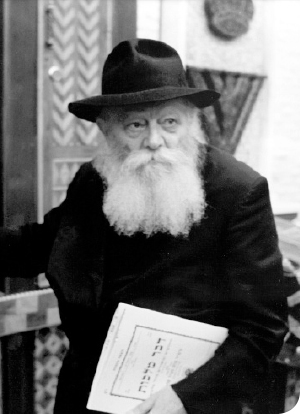Moshe Rabbeinu was eighty years old when he redeemed the Jewish people from Egypt. The Messianic, final redemption is related to Moshiach at age ninety. * Chapter Twelve of Rabbi Shloma Majeski’s Likkutei Mekoros. (Underlined text is the compiler’s emphasis.)
Translated by Boruch Merkur
 14. The conclusion based on the above analysis as it relates to practical action:
14. The conclusion based on the above analysis as it relates to practical action:
The redemption comes about specifically through the avoda in the time of galus (exile), the avoda of revealing the Alufo Shel Olam within the “gola,” resulting in this generation, the final generation of exile, being the first generation of redemption.
And G-d Alm-ghty helps that we see in global current events how the world itself assists and advances towards the redemption.
Simply speaking this means, as above, that in general, every Jew must add in our “deeds and our service.” This extra effort, especially by adding in Torah study about the redemption, serves to brings about the actual redemption, as discussed in the previous farbrengen. “Torah study about the redemption” here refers to both the Written Torah (regarding which Rambam writes, “all the s’farim are full with the topic”) as well as the Oral Torah – Mishna, Gemara, Midrashim, etc.
And regarding our approach to this directive itself, we must embrace the lesson of Pesach Sheni – that “it is never too late” to make a reckoning, properly correcting and making up for the avoda of the past, or by further dedicating ourselves to this avoda. To that end, we are ordered and we are granted the power that if in the past there was something lacking, it is never too late; we can always fix it.
The main thing is that all that appears to be fading away in exile or that is actually being lost, should be brought to light and corrected. The message here includes the notion of being lost in the positive sense (being beyond revelation), “gilui ha’keitz – disclosing the time of the advent of Moshiach,” regarding which it is said, “The heart is not revealed in the spoken word.” In the same vein, Moshiach Tzidkeinu comes “b’hesech ha’daas – by surprise” (the discovery of a lost object), as it is said, “I have found Dovid, My servant (in the 89th Psalm, verse 21) and this discovery appears in the 90th Psalm:* “May the pleasantness of G-d our L-rd be upon us and may the deeds of our hands be established for us, and the deeds of our hands be established,” in the Third Beis HaMikdash in the true and complete redemption, the redemption of all the Jewish people, “with our youths and our elderly…with our sons and our daughters.”
NOTES:
Footnote 126: To note that our forefathers were redeemed from Mitzrayim with the letter Pei/Final Pei (which is numerically equivalent to 80), as it is said (Shmos 3:16), “Pakad pekadeti es’chem – I have surely remembered you (and what is being done to you in Egypt).” (Also, Moshe was 80 years old when he redeemed the Jewish people from Egypt.) Whereas, the
Alm-ghty will redeem the Jewish people in the future [complete redemption] with the letter Tzaddik/Final Tzaddik, 90, and tell them, “Tzemach tzimachti la’chem – I have indeed caused redemption to sprout forth for you,” as it said, “Behold a man whose name is Tzemach (sprout or shoot) will spring up out of his place and build the Temple of G-d” (Pirkei D’Rabbi Eliezer Ch. 48). And BaMidbar Rabba, end of Parshas Korach, cites the verse (Yirmiyahu 23:5), “I will set up of Dovid a righteous shoot, etc.” (and see the commentary of HaRadal to Pirkei D’Rabbi Eliezer, ibid). See maamer beginning with the words “Lech” in Ohr HaTorah (674a), 627, 630.
(From the address of Shabbos Parshas Acharei-K’doshim 13 Iyar 5751; Seifer HaSichos 5751, pg. 518-519)